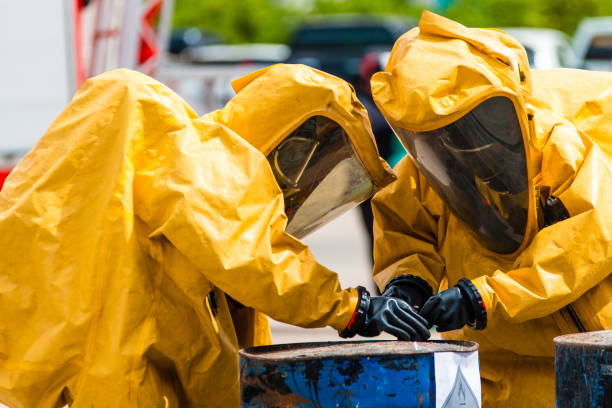Safety and Well being
How To Survive a Bio-chemical Attack

Biological and chemical weapons have the potential to be the most lethal and difficult to contain of all human weaponry. Man-made biological weapons are those that spread infectious diseases or poisons from living organisms to humans.
Over a million people were injured and over 100,000 were killed as a direct result of the use of chemical weapons during World War I.
WATCH:
How do you stay alive in a chemical warfare situation?
Be as well-informed as possible.
Let’s say a pandemic of some sort occurs. Data on the spread of the virus, notifications on vaccines or other treatments, strategies for preventing yourself safe, and travel warnings are provided in such a case by the World Health Organization (WHO), the Centers for Disease Control and Prevention (CDC), and other governmental and non-governmental organizations.
There are already websites available to the general public that offer useful planning information from organizations like the World Health Organization (WHO) and the Centers for Disease Control and Prevention (CDC), as well as several other national governments. Newspapers, television shows, and radio shows will also help get the word out on some very serious warnings and recommendations.
Hand-washing at regular intervals
One of the best ways to avoid catching the flu or any other contagious illness is to practice regular hand washing. In the event of a pandemic, hand hygiene is of the utmost importance. Be sure to properly wash your hands with soap and water.
Use a disinfectant that contains alcohol.
You should always have an alcohol-based hand cleaner on you because it is impractical to wash your hands after every possible virus encounter. Detergents are available in a wide variety of forms and can be used whenever a quick fix is needed.
However, these products should only be used as a last resort and not as a replacement for thorough hand washing.
Maintain a safe distance
The best way to protect yourself from an infectious disease is to stay away from people who have it. Once symptoms appear, there is no way to tell who has been infected and who has not, and everyone is at risk of spreading the disease. It’s reasonable to limit your interactions with others, especially in large groups, during a pandemic.
Put on Medical Gloves
Wearing gloves protects your hands from contamination, which could otherwise be absorbed through cuts or transferred to other parts of your body.
Wearing latex or nitrile medical gloves or thick rubber gloves is one way to protect one’s hands. If the gloves are torn or otherwise damaged, the wearer should remove them, wash their hands thoroughly, and then throw away the gloves.
Eyewear for safety
Some infectious diseases can be caught by ingesting contaminated droplets, like those from a sneeze or spittle, or by touching the eyes or mouth afterward. Wear protective eyewear, such as glasses or goggles, and keep your hands away from your face at all times. Keep your hands away from potentially hazardous surfaces.
CONCLUSION
Antiviral drug effectiveness declines with disease progression; therefore, prompt medical attention is crucial. Even if you don’t feel sick, you should see a doctor after close contact with an infected person.

















